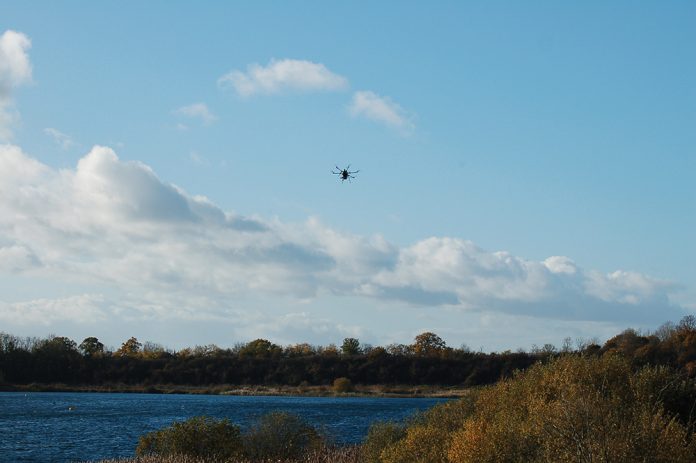A new drone inspection service can help water companies monitor and improve the quality of river and coastal water.
Northumbrian Water took part in a pilot study using test flights to demonstrate how beyond visual line of sight (BVLOS) electric drone operations can help automate water quality surveys.
The technology helps gain access to hard-to-reach areas, reduces carbon emissions, gathers more data over a larger area, and obtains results much faster.
The maiden test flights were carried out by Skyports Drone Services in collaboration with Makutu.
Their service is an alternative to current labour-intensive data collection processes which require personnel to manually collect water and return it to a central lab for testing. In rural locations, over large expanses, or during poor weather, this process can be difficult, dangerous and time consuming.
Skyports deployed its Speedbird Aero aircraft for phase one of the flights. The aircraft is fitted with specialist winch technology which carries Makutu’s water sensor technology to testing locations. The winch lowers the sensor into the water to collect test samples, with data fed back to Northumbrian Water in near real-time for analysis.
The aircraft does not need to return to base between tests and can collect data from multiple test locations in a single outing and on a single battery charge.
Phase one proof-of-concept flights in Berwick-upon-Tweed, Bishop Auckland and Blyth in the North East focused on testing the technology, supported by visual ground observers. The next phase will scale operations and see BVLOS sample collections remotely operated.
Alex Brown, Director of Skyports Drone Services, said: ““Water quality is a hugely important issue in the UK.
“With Northumbrian Water alone covering an area of 9,400km2, the potential positive impact to the environment, to field personnel, and to the communities that access these river and coastal locations is enormous.”
Richard Warneford, Wastewater Director at Northumbrian Water, said: “We’re just as passionate as our customers about protecting the environment and improving river and coastal water quality so to have these test flights underway is really exciting.
“There’s a lot of hard work gone into understanding how UAV technology can be used to collect data efficiently, and these successful test flights have proven the validity of it as part of our huge water quality monitoring programme.
“We’re proud to be making history with this project and we can’t wait to begin rolling it out officially across the North East – it’s just another step towards having the cleanest rivers and beaches in the country.”
James Sumsion, Chief Executive Officer of Makutu, said: “The successful test flights represent not just incredible technical innovation but are testament to the power of partnership and forward-thinking in addressing ecological challenges.
“By harnessing the capabilities of UAV technology, we’re streamlining data collection and analysis paving the way for more informed and rapid decision-making in water course management.”




